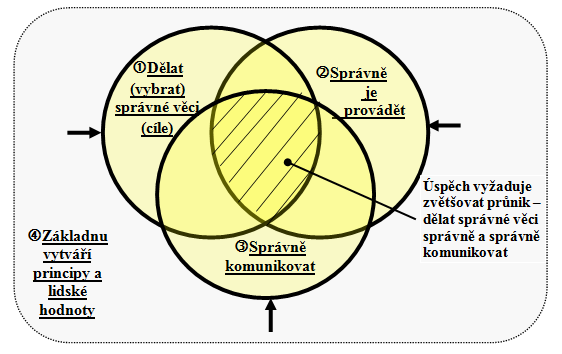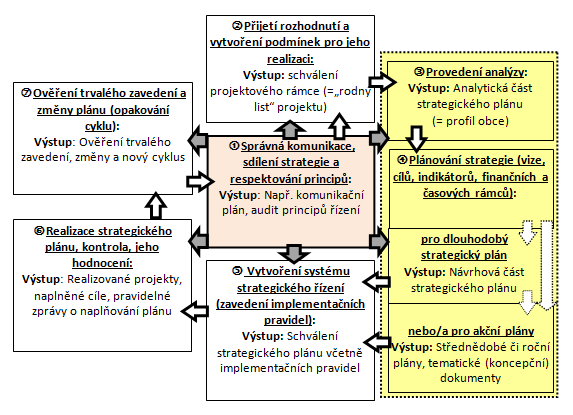Strategic Planning and Management
Continuously changing economic conditions of today’s world represent a big challenge for strategic management. The concept of “strategic” moves away from the tasks associated with strategic planning (i.e. formulation of a plan and the monitoring of its implementation) to the strategic management approach. Strategic management is a way of thinking, in which all activities, resources and expenditures are targeted to a set of priorities and objectives.
By law, municipalities do not need to follow the principles of strategic management. However, legal obligations require local governments to establish criteria for the efficiency of their operation. Efficiency is related to goals yet, if the goals are not established, efficiency cannot be assessed and consequently, the legal obligation is not met. This can be avoided by the utilization of correct strategic management.
Strategic Approach -“Doing the Right Things Right”
Strategic management must be understood by everyone involved in its implementation. It is a pleasure to work with individuals who have their own simple management model in their heads everyday and can simultaneously promote and share it with others. Literature refers to this principle as a strategic approach.
MEPCO’s approach is also based on a simple model; this model uses the ideas of Peter F. Drucker and Stephen R. Covey – “Doing the Right Things Right” – which is mainly based on systematic thinking and common sense.
In order for a municipal management system to be effective, powerful and of high quality for the long term, its principles should therefore be simple and understandable for all stakeholders. The aim of government is to learn to do the right thing (improving the quality of life while respecting sustainable development) in a right way (quality, efficiently and on time) and communicate it to the public correctly. Such a model is shown in the following figure:
The “Doing the Right Things Right” model with addition of principles and human values

This model assumes a balance of three key elements for effective management:
- Select and enforce “the right things” (i.e. the right investments, projects, activities, actions or legislation) which must be reflected in the strategy – particularly in usefulness
- Do them right (efficiently, effectively, well, within budgets and time)
- Communicate them properly both inside and outside the organization (this applies for customers, citizens and society value)
The vase (the fourth element) is comprised of principles and human values – keeping the promises, avoiding corruption, having integrity.
19.6.2018
Společnost získala akreditaci vzdělávacího programu průběžného vzdělávání pro úředníky a vedoucí úředníky
více25.4.2018
Komunitární programy a programy územní spolupráce EU – Příležitosti a možnosti pro obce a města
více12.7.2016
RegPol2: Výzva pro podání přihlášek na seminář “The 3rd RegPol² School” – pro PhD studenty
více16.3.2016
Navštivte seminář v rámci Evropského Habitatu: „Jak mohou obce na svém území podporovat udržitelný rozvoj?”
více22.7.2014
Podpora sociální ekonomiky ze strany obcí – téma poslední studijní cesty do Nizozemska
více13.5.2014
MEPCO se aktivně podílí na vytváření metodik a manuálů pro nové programové období 2014+
více


